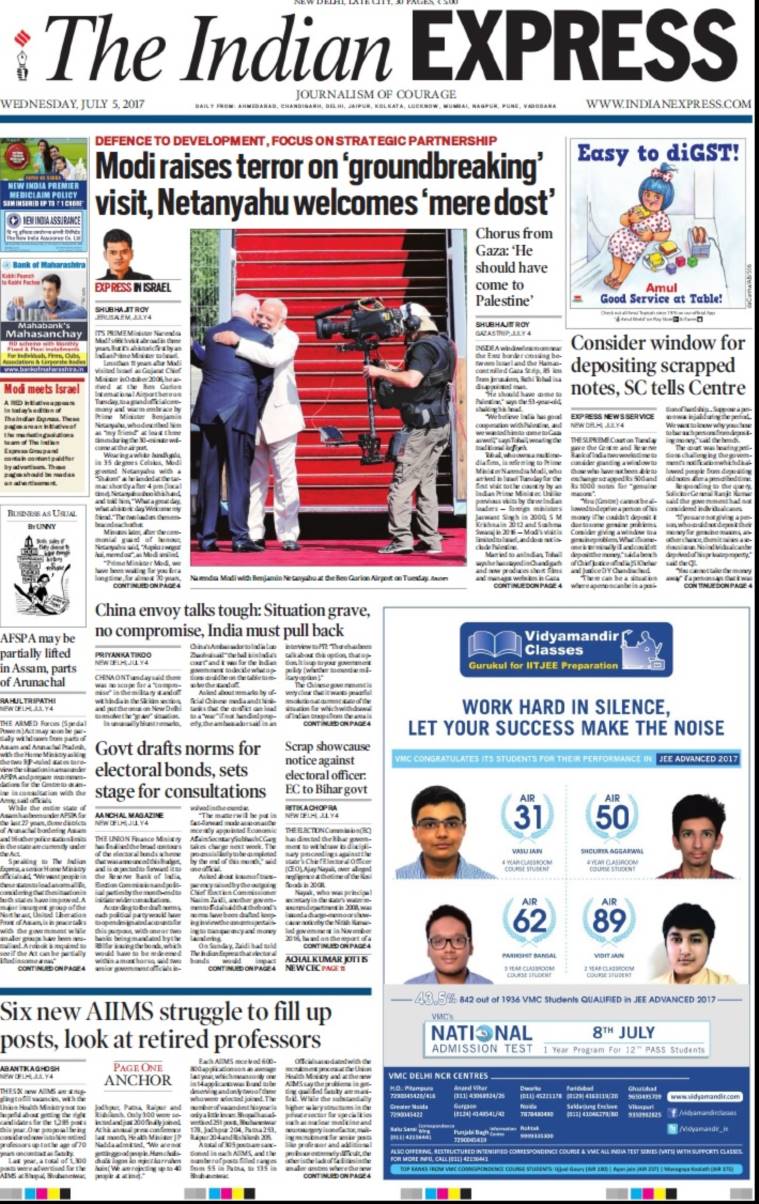

The district judge who did inquiry into the fire concluded that a short circuit or a cigarette butt could have ignited the fire and said that the growing city had inadequate fire control support. This relocation also helped the Express obtain better high speed printing machines. The Hindu, a rival newspaper, helped considerably in re-launching the paper, by getting it printed temporarily at one of its Swadesimithran's press and later offering its recently vacated premises at 2, Mount Road, on rent to Goenka, which later became the landmark Express Estates. In 1940 the whole premises was gutted by fire.

The name Three Musketeers was often used for the three dailies namely, Indian Express, Dinamani and Andhra Prabha. In 1939 Goenka bought Andhra Prabha, another prominent Telugu daily newspaper.
#Indian express free#
In 1935, when The Free Press Journal finally collapsed, and after a protracted court battle with Goenka, Sadanand lost ownership of Indian Express. Faced with financial difficulties, he sold a part of his stake to Ramanath Goenka as convertible debentures. Sadanand introduced several innovations and reduced the price of the newspaper. In 1933, the Indian Express opened its second office in Madurai, launching the Tamil edition, Dinamani. Soon under financial difficulties, he sold the newspaper to Swaminathan Sadanand, the founder of The Free Press Journal, a national news agency. Varadarajulu Naidu, at Chennai, being published by his "Tamil Nadu" press.

It is simply not true that reservation for women benefits upper caste women at the expense of other under-represented groups.In 1932, the Indian Express was started by an Ayurvedic doctor, P. In Sitapur, while female reservation reduced male Muslim representation it increased the likelihood that Muslim women would be pradhans. In Birbhum, we see no difference in the representation of Muslims among male and female leaders. In two districts, Birbhum in West Bengal, and Sitapur in Uttar Pradesh, we found that female village leaders are as likely as male village leaders to come from the three historically disadvantaged groups of Scheduled Castes, Scheduled Tribes, and Other Backward Classes.

Reservation of the pradhan position improves female representation across the board. We have been evaluating the results of this policy, with Raghabendra Chattopadhyay of IIM Calcutta and others, for over 10 years. India introduced reservation for women at the panchayat level in 1993. But is there any truth to these claims?įortunately, we have reliable evidence on both of these questions. If quotas for women reduce representation for the poor and religious minorities, we might want to try a different system -and it is not clear that electing rich women whose every move is controlled by their husbands would help the cause of poor women, or even women in general. If these were real dangers, they would certainly give pause. A related concern is that powerful men might field their wives or daughters as their political proxies and expect them to do their bidding. A common concern is that gender quotas will mainly benefit rich upper caste women and crowd out the representation afforded to other groups, especially Muslims and poor Hindus. However, the bill faces strong political opposition. If the Women's Reservation Bill becomes law, then 181 out of 543 national legislators and 1370 out the 4109 state legislators will be women, significantly altering the (paltry) number of elected women in the world.


 0 kommentar(er)
0 kommentar(er)
